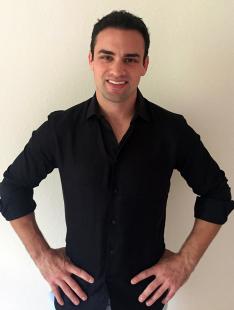Beneschott says he used to believe that the best startups had to follow the “traditional” Silicon Valley model to be successful — by rounding up a small group of like-minded and smart individuals and having them work together in an office space in San Francisco or New York. But he changed his mind after collaborating for the first time with a remote freelancer in Argentina who was recommended to him by Du Val.
“He was insanely smart, very proactive, and easy to communicate with, and I started to think, ‘OK, it is possible to have a team all over the world — you just need a very specific type of person to do it,’” Beneschott says.
One of the biggest problems in Silicon Valley, Beneschott says, is that the demand for excellent engineers greatly exceeds the supply. The Facebooks and Googles of the world can lure in the best engineers by offering high salaries and exceptional benefits. But for companies with less capital, it can be difficult to entice the top talent — and time-consuming to sift through hundreds of applications for a software-engineering position to try to discern whom the top talent is.
So Beneschott and Du Val started Toptal to allow companies to skip both steps and to provide them with a vetted list of some the best freelancers in the world. All freelancers that work through Toptal are required to go through a screening process, over multiple weeks, that tests them on their abilities to communicate clearly, solve timed algorithms, and work on “test projects” that are similar some of the assignments they could receive from Toptal clients. Typically, between 1 and 3 percent of potential freelancers pass.
Today, Toptal makes more than $100 million each year and has about 100 employees, several thousand freelancers, and thousands of clients around the world. In its earlier years, Toptal was working mainly with smaller technology companies but has since expanded to work with banks, hedge funds, consulting firms, and other big names, including Airbnb, J.P. Morgan, and Emirates airline.
Beneschott spent a few summers working in corporate offices — and quickly discovered that he hated being confined to a desk. So, more than six years after Toptal began, the company still does not have a formal office, and there are no plans to establish one. There is no dress code or set company hours and all employees have unlimited vacation days, which allows for travel and family time, Beneschott says. Most of the communication between employees is done either over the phone or through messaging apps like Slack.
Beneschott is now based in South Florida and spends much of his free time with his 10-month-old daughter, but spent the majority of the last five years traveling and working remotely around the world in places like Hungary, Argentina, Lebanon, and New Zealand.
“[Having no office] is not for everybody, but for me, there’s a freedom to it that is really liberating,” he says. “If I work for a really long time and start to get burned out, instead of taking a vacation, I’ll jump on a plane and go somewhere I haven’t been before. By the time I get there I’m in this whole new place, the scenery is different, and I’m not burned out anymore. I feel great, and I’m exhilarated once again.”

